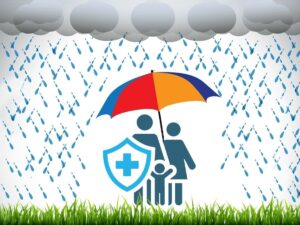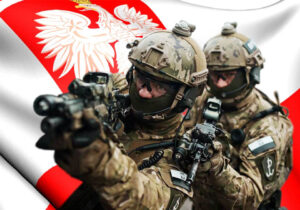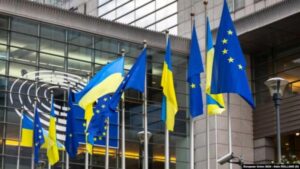
According to industry forecasts and research by the Experts Club analytical center, the construction materials market in Ukraine, including roofing systems, is showing a slight recovery after the crisis years of 2022–2023. According to 6Wresearch, this segment will grow at an average annual rate of 6.9% in 2025–2031. The main demand comes from private housing construction and projects to rebuild destroyed homes and warehouses.
The largest Ukrainian manufacturers of roofing materials are:
According to industry experts, Ukrainian production covers up to 70% of domestic demand.
According to Ukrainian customs statistics, in 2024, imports of roofing materials amounted to about 14,000 tons worth $26 million. The main suppliers were:
Country Volume (tons) Well-known brands
Poland 4,700 Braas, Creaton, Roben
Germany 3,800 Braas Monier, Erlus
Italy 1,500 Tegola Canadese, Wierer
France 1,200 Imerys, Terreal
Spain 900 Cobert, Tejas Borja
Hungary 650 Mediterran
Roofing materials are construction products and coatings designed for the upper layer of a roof, which protects the building from precipitation, wind, temperature changes, solar radiation, and mechanical influences.
Roofing materials are made from various materials, including:
Main types of roofing materials
The world leaders in the production of roofing materials of various categories are:

The number of insurance companies in Ukraine decreased by one in July 2025, and as of the end of the month, there were 51 risk insurers operating on the market, 10 life insurance companies, and one company with special status, the Export Credit Agency (ECA). According to the website of the National Bank of Ukraine (NBU), the number of banks remained unchanged at 60. The number of insurance and/or reinsurance brokers also remained unchanged at 44.
Overall, the number of participants in the country’s non-bank financial market decreased to 799 last month from 812 at the beginning of the month.
The NBU reports that in July it revoked the licenses of one financial company at the applicant’s initiative and forcibly revoked the licenses of eight financial companies, one risk insurer, and three credit unions.
As of August 1, 2025, there were also 423 financial companies (previously 432), 90 credit unions (previously 93), 105 pawnshops, one leasing company, and 74 collection companies (the number remained unchanged) operating in the non-bank financial services market.
The number of banking groups increased by one to 16, non-banking financial groups remained at 40, payment systems created by residents, including state-owned ones, numbered 15, and 10 international ones (previously 12), payment institutions – 17 (previously 18), financial institutions authorized to provide payment services – 12, one electronic money issuer, and one postal operator.
Other entities operating in the payment market include 48 commercial agents and 31 payment service technology operators (the number has not changed).
In July, the National Bank received 280 requests from market participants regarding registration and licensing activities.
The number of requests concerning financial companies, pawnshops, and leasing companies amounted to 149, insurers – 54, credit unions and collection companies – 32, banks – 45.

On August 8, the supervisory board of Veles Insurance Company (Odessa) extended the term of office of the chair of the management board, Oksana Sherstneva, until September 1, 2025, according to information published by the National Securities and Stock Market Commission (NSSMC) on the holding of a general meeting.
As reported, on July 17, 2025, the National Bank of Ukraine imposed measures on Veles Insurance Company in the form of a written warning due to the fact that the insurer’s authorized capital does not meet the requirements of the Insurance Law regarding its minimum size. In addition, an enforcement measure in the form of a written warning was also applied to IC Veles due to the non-compliance of the insurer’s business reputation and significant shareholders with the requirements of the law.
The company’s shareholders plan to consider increasing the authorized capital by 61.5%, or UAH 24 million, at a general meeting on August 14, 2025.
Veles Insurance Company has been operating in the market since 1998. It holds 15 licenses for voluntary and compulsory types of insurance. It is a member of the Insurance Business Association. Its authorized capital is UAH 39 million.

Polish Defense Minister Vladislav Kosiniak-Kamysz said that the country intends to create an army of more than 500,000 troops.
This significantly exceeds the plans previously announced by President Karol Navrocki to bring the army to 300,000.
“We will create an army larger than the one President Nawrocki spoke about — not 300,000, but more than 500,000 people,” the minister said in an interview with Rzeczpospolita.
According to him, the president has already approved plans to expand the army.
Currently, there are more than 210,000 soldiers in the Polish army, and by the end of 2025, this figure is expected to reach 230,000.
Earlier, Prime Minister Donald Tusk said that the Polish army is already the largest in the EU and in a few years will become “the strongest in the region.”

The cryptocurrency market is showing steady growth: the total market capitalization exceeded $4.1 trillion, with a daily increase of about 2–2.6%.
Bitcoin is currently trading at around $122,000–123,000, close to its all-time high reached in July 2025. Ethereum has strengthened to $4,300, its highest level since the end of 2021.
The growth of the cryptocurrency market is driven by:
Against this backdrop, the crypto market is experiencing a “crypto summer” — a wave of IPOs and public listings of companies in the industry, including brands such as Galaxy Digital, Coinbase, and Kraken.
The market has reached new heights: capitalization consistently exceeds $4 trillion, and Bitcoin and Ethereum are strengthening, supported by institutional inflows and favorable regulation. Regulatory initiatives are stimulating investor interest and confidence: the creation of cryptocurrency ETFs, the permission to include digital assets in pension funds, and the promotion of stablecoin laws (the Genius Act in the US). The industry is becoming increasingly institutionalized: companies are actively launching IPOs, and large funds are entering the market and accumulating assets.
The overall trend is positive: active growth continues, but volatility risks remain, especially in the event of a deterioration in the macroeconomic situation or a change in the policies of key regulators.

The Council of the European Union has approved the fourth tranche of the Ukraine Facility program in the amount of more than EUR3.2bn, while its size was previously determined at around EUR3.05bn.
“The objective is to support Ukraine’s macro-financial stability as well as its recovery, reconstruction and modernization,” the EU Council said in a statement.
As reported, the size of the tranche was reduced from the planned EUR4.5bn due to delays in the implementation of 3 out of 16 indicators that Kiev had to fulfill according to the Ukraine Facility’s Ukraine Plan: the laws on the territorial organization of executive power (the so-called “decentralization reform”) and on the ARMA reform, as well as the selection of 25 judges for the Supreme Anti-Corruption Court in a competition in which only 2 candidates reached the finish line.
At the same time, the head of the Economy Ministry, Oleksiy Sobolev, noted that Ukraine will fulfill two of the three indicators (laws) before September, which will make it possible to receive EUR1.1bn tentatively in early November
As the Ministry of Finance of Ukraine reminded, in general, the state budget has already received EUR19.6bn within the framework of the Ukraine Facility program, the total amount of which is EUR50bn. In 2025 alone, about EUR12.5bn of financial support for Ukraine is envisaged, of which EUR3.5bn has already been attracted.
The European Union remains the largest donor of budget support for Ukraine – EUR53.5bn over more than three years, the Finance Ministry also noted.